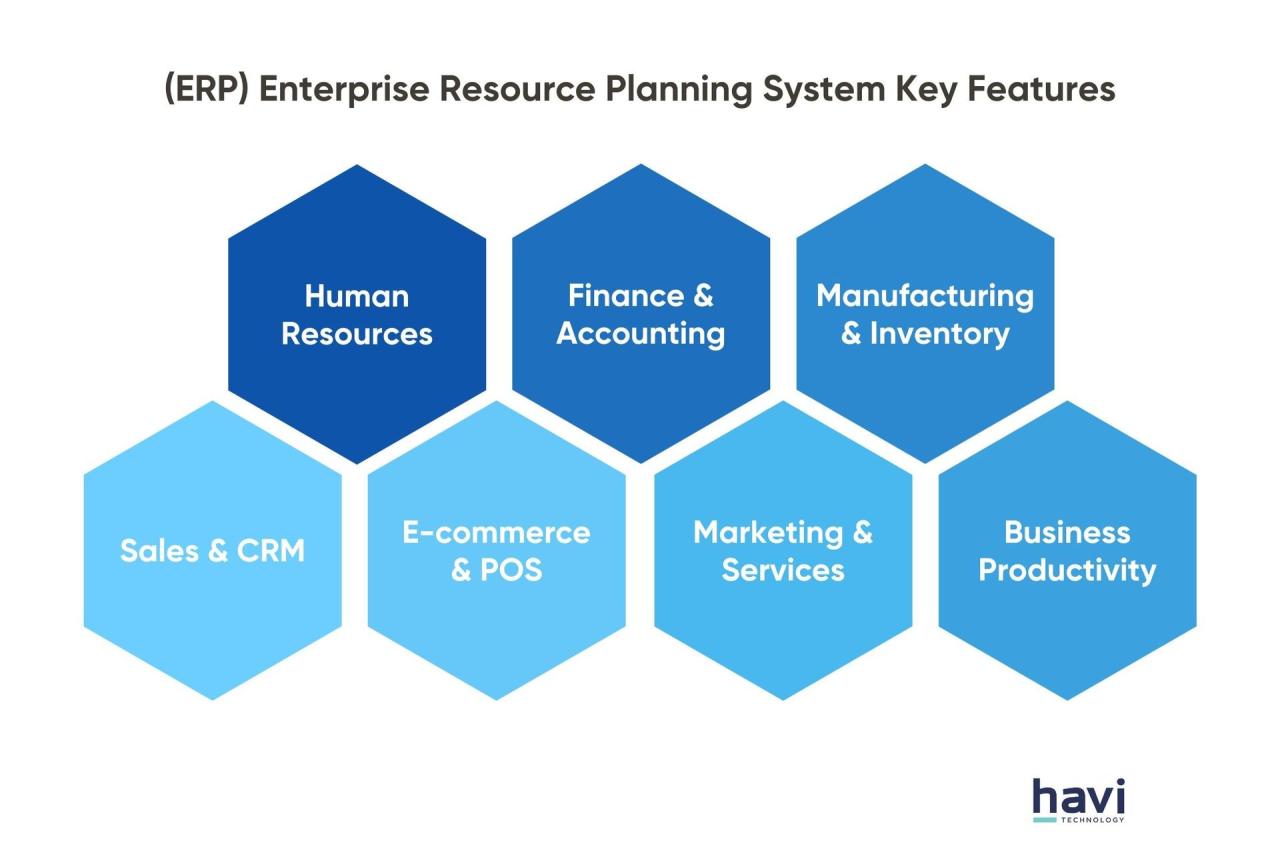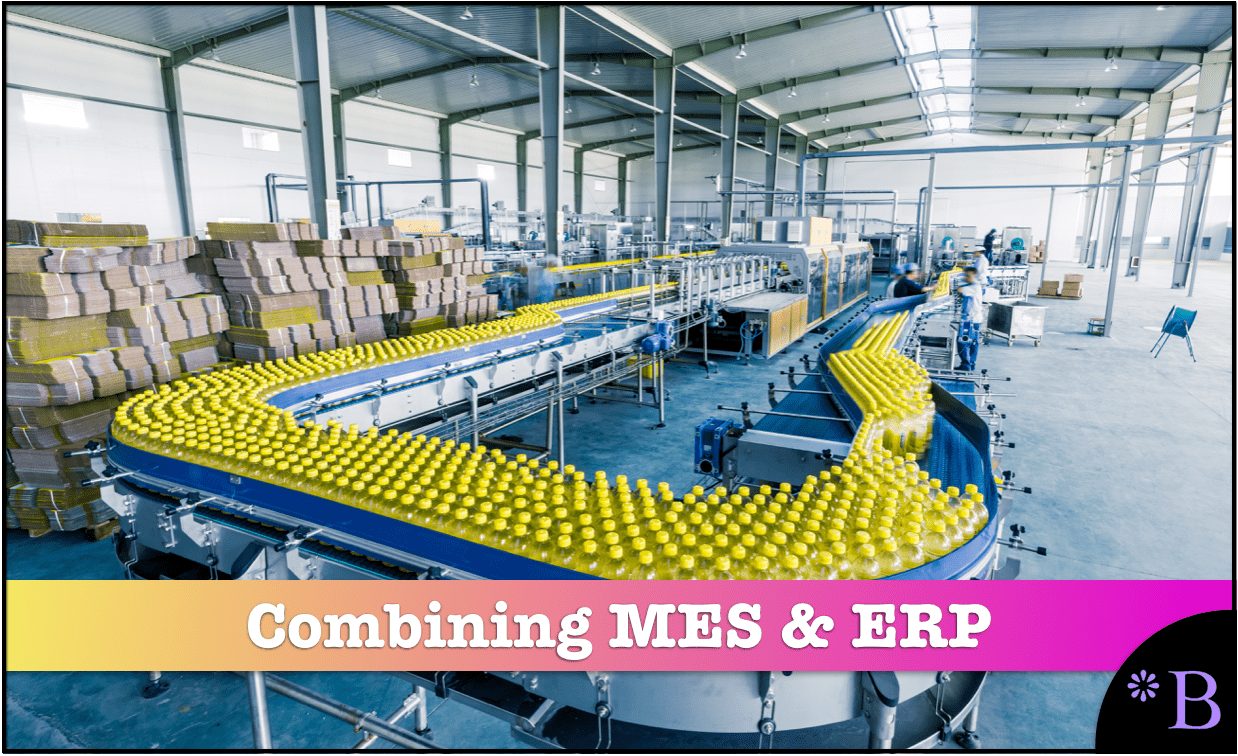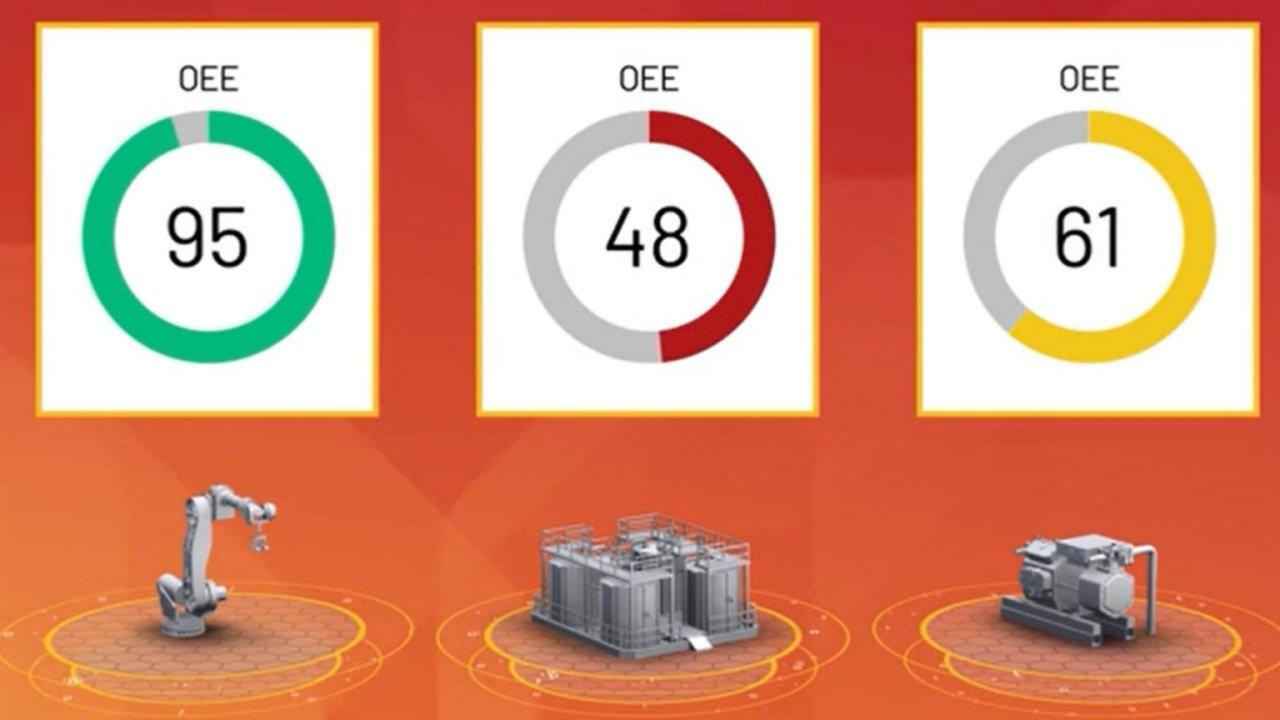Delving into mes erp, we explore a pivotal concept that is revolutionizing the manufacturing landscape. Manufacturing Execution Systems (MES) integrated with Enterprise Resource Planning (ERP) have emerged as essential tools for organizations seeking to enhance operational efficiency. These systems not only streamline production processes but also provide real-time insights that are crucial for informed decision-making.
MES ERP systems comprise key components such as data collection, production tracking, and quality management functionalities, all aimed at optimizing manufacturing processes. Various industries, including automotive, electronics, and pharmaceuticals, are leveraging these systems to improve productivity and drive innovation, illustrating the broad applicability and significance of mes erp in today’s competitive market.
Overview of MES ERP Systems
Manufacturing Execution Systems (MES) integrated with Enterprise Resource Planning (ERP) systems have emerged as vital tools for modern manufacturing processes. These systems bridge the gap between the operational and business aspects of manufacturing, ensuring that production is aligned with overall organizational goals.MES ERP systems are designed to monitor and control manufacturing processes in real-time, thereby enhancing efficiency and productivity. The significance of these systems lies in their ability to provide manufacturers with a comprehensive view of operations, facilitate informed decision-making, and improve overall production quality.
By integrating MES with ERP, companies can achieve better resource allocation, reduced cycle times, and enhanced compliance with industry standards.
Key Components and Functionalities of MES ERP Systems
Understanding the essential components of MES ERP systems is crucial for leveraging their full potential. These components work cohesively to streamline operations and enhance visibility within manufacturing environments. The following are key components and their functionalities:
- Real-time Data Collection: MES ERP systems collect data from various production processes, enabling manufacturers to monitor performance metrics such as machine efficiency, production rates, and product quality on a real-time basis.
- Production Scheduling: These systems allow for effective scheduling of production activities by considering resource availability, production deadlines, and order priorities, thus optimizing workflow.
- Quality Management: MES ERP systems integrate quality control processes, ensuring that products meet specified standards and reducing the likelihood of defects in production.
- Inventory Management: Efficient tracking of raw materials and finished goods inventory helps in maintaining optimal stock levels, which minimizes holding costs and prevents production delays.
- Traceability: The systems provide a comprehensive traceability feature that allows manufacturers to track products throughout the production lifecycle, facilitating compliance with regulatory requirements.
Industries Benefiting from MES ERP Implementation
Various industries stand to gain significantly from the implementation of MES ERP systems. These sectors leverage the functionalities of the systems to enhance operational efficiency and improve product quality. Some notable examples include:
- Aerospace: The aerospace industry benefits from rigorous quality standards and compliance requirements, which are effectively managed through MES ERP systems.
- Pharmaceuticals: Compliance with strict regulatory standards is critical; MES ERP ensures that production processes adhere to these regulations while maintaining product integrity.
- Automotive: The automotive industry utilizes MES ERP for just-in-time production, improving inventory management and reducing production lead times.
- Electronics: Rapid product changes and the need for high-quality standards make MES ERP essential for managing complex manufacturing processes in electronics.
- Food and Beverage: With a focus on quality and safety, the food industry benefits from traceability and compliance management features of MES ERP systems.
“The integration of MES and ERP systems transforms data into actionable insights, driving efficiencies in manufacturing operations.”
Benefits of Implementing MES ERP

The integration of Manufacturing Execution Systems (MES) with Enterprise Resource Planning (ERP) systems presents numerous advantages that can significantly enhance operational efficiency and productivity in manufacturing environments. By aligning these systems, organizations can achieve a more seamless flow of information, leading to improved decision-making and resource management. One of the major benefits of integrating MES ERP with existing systems is the ability to synchronize real-time production data with business operations.
This integration fosters a unified platform where information is readily accessible across departments, promoting collaboration and transparency. Moreover, it allows manufacturers to quickly respond to changes in market demand, production schedules, or supply chain disruptions.
Implementing erp web solutions is essential for modern businesses aiming to enhance efficiency and productivity. These systems work seamlessly with applications like microsoft navision , enabling organizations to manage their resources more effectively. By leveraging both tools, companies can achieve a more integrated approach to their operations, ultimately leading to better performance.
Enhancement of Production Efficiency and Cost Reduction
The implementation of MES ERP directly correlates with improvements in production efficiency and significant cost reductions. By utilizing real-time data collected from the shop floor, organizations can streamline their production processes, minimize downtime, and optimize resource allocation. The following points highlight how MES ERP contributes to these enhancements:
- Real-time Monitoring: MES ERP facilitates continuous monitoring of production processes, enabling immediate identification and resolution of issues that may arise during manufacturing.
- Improved Quality Control: With integrated quality management tools, manufacturers can enforce quality standards effectively, which leads to a reduction in waste and rework costs.
- Inventory Management: Accurate tracking of raw materials and finished goods minimizes excess inventory, thus reducing storage costs and improving cash flow.
- Enhanced Scheduling: MES ERP systems can optimize production schedules based on real-time data, thus improving throughput and reducing lead times.
The integration of MES ERP not only maximizes production efficiency but also contributes to substantial savings, which can be redirected towards innovation and growth initiatives within the organization.
Comparison of Traditional ERP Systems and MES ERP
When comparing traditional ERP systems with MES ERP, a key distinguishing factor is their approach to real-time data utilization. Traditional ERP systems often operate on batch processing and historical data, which limits their ability to provide timely insights and reactionary measures. In contrast, MES ERP systems leverage real-time data from manufacturing operations to facilitate immediate decision-making. Important differences include:
- Data Accessibility: MES ERP provides instant access to real-time performance metrics from the shop floor, whereas traditional ERP relies on scheduled updates that may not reflect current conditions.
- Response Time: Production adjustments in MES ERP can be made instantly based on real-time data, leading to faster reaction times compared to the slower processes of traditional ERP systems.
- Integration Depth: MES ERP systems are designed to integrate deeply with manufacturing processes, ensuring that data flows seamlessly between shop floor operations and business management functions.
“MES ERP transforms manufacturing by utilizing real-time data, providing a competitive edge that traditional ERP systems cannot match.”
Understanding microsoft navision can significantly enhance your business operations, offering tailored solutions for various industries. In addition, integrating an erp web system can streamline processes, improve data management, and facilitate better decision-making. By combining these technologies, businesses can optimize their workflows and drive growth effectively.
In summary, the advantages of implementing MES ERP systems are evident in enhanced production efficiency, cost reduction, and superior data utilization, which collectively position organizations for greater success in an increasingly competitive landscape.
Challenges in MES ERP Implementation

The implementation of MES ERP systems can significantly enhance operational efficiency and productivity within manufacturing organizations. However, the journey is often fraught with challenges that can hinder successful adoption. Understanding these challenges is crucial for organizations to strategize effectively and ensure a smoother transition to MES ERP solutions.One of the primary hurdles organizations encounter during MES ERP implementation is resistance to change among employees.
Employees may fear the unknown or feel threatened by the new system, leading to pushback against the transition. In addition, inadequate training can result in a lack of understanding of the system’s functionalities, further exacerbating resistance and affecting overall productivity. The integration of MES ERP solutions with existing systems can also pose technical challenges, including data migration issues and compatibility concerns.
Common Hurdles in MES ERP Adoption
Organizations typically face several common hurdles when adopting MES ERP solutions. These challenges need to be acknowledged and addressed to facilitate a successful implementation process. Key hurdles include:
- Employee Resistance: Fear of change can lead to reluctance from staff to embrace new processes.
- Lack of Training: Insufficient training programs can result in employees not being able to fully utilize the system.
- Integration Complexity: Challenges associated with blending MES ERP with existing IT infrastructure can disrupt operations.
- Data Migration Issues: Transferring data from legacy systems to the new MES ERP can lead to inaccuracies and data loss.
- Cost Overruns: Unexpected costs can arise due to unforeseen complexities during implementation.
To navigate these hurdles effectively, organizations must adopt a structured approach to ensure successful integration of MES ERP systems.
Steps for Successful MES ERP Integration
Implementing MES ERP requires meticulous planning and execution. Organizations should follow a series of critical steps to facilitate a smooth transition:
- Define Objectives: Establish clear goals for the MES ERP implementation to align expectations.
- Engage Stakeholders: Involve key stakeholders early in the process to gain support and insights.
- Assess Existing Infrastructure: Conduct a thorough evaluation of current systems to identify integration points.
- Develop a Training Plan: Create comprehensive training programs to equip employees with necessary skills.
- Conduct Pilot Testing: Implement a pilot phase to identify potential issues before full-scale deployment.
- Monitor and Adjust: Continuously assess the system post-implementation to make necessary adjustments and improvements.
By adhering to these steps, organizations can mitigate risks associated with MES ERP adoption and enhance their chances of success.
Best Practices for Overcoming Resistance to Change, Mes erp
Overcoming resistance to change during the MES ERP implementation process is crucial for successful adoption. Employing best practices can foster a more receptive environment among employees:
- Effective Communication: Clearly communicate the benefits and necessity of the new system to alleviate fears.
- Involvement in Planning: Engage employees in the planning process to give them a sense of ownership.
- Highlight Success Stories: Share examples of successful MES ERP implementations within the industry to motivate employees.
- Provide Continuous Support: Establish ongoing support channels for employees to address concerns and questions.
- Reward Participation: Recognize and reward employees who actively participate in the transition process.
Implementing these best practices can significantly reduce resistance to change and promote a more harmonious transition to MES ERP systems.
Future Trends in MES ERP Technology

As the manufacturing landscape continues to evolve, the integration of advanced technologies into Manufacturing Execution Systems (MES) and Enterprise Resource Planning (ERP) is becoming increasingly critical. The future of MES ERP systems is marked by innovations that enhance efficiency, responsiveness, and adaptability. By embracing emerging technologies, organizations can optimize their operations and achieve significant competitive advantages in a rapidly changing market.The convergence of technologies such as Artificial Intelligence (AI) and the Internet of Things (IoT) is poised to redefine MES ERP systems.
AI’s capabilities in data analysis, predictive maintenance, and process optimization will lead to more intelligent decision-making processes. Meanwhile, IoT will facilitate real-time data collection and integration, allowing for enhanced visibility and control over manufacturing processes. These advancements not only streamline operations but also contribute to a more agile and responsive manufacturing environment.
Emerging Technologies Shaping MES ERP Systems
The following table Artikels potential future developments in MES ERP technology and their expected impacts on manufacturing processes. These advancements highlight the transformative potential of integrating AI and IoT within MES ERP systems.
| Technology | Description | Expected Impact |
|---|---|---|
| Artificial Intelligence | Utilization of AI algorithms for predictive analytics and decision-making. | Enhanced operational efficiency through data-driven insights and reduced downtime via predictive maintenance. |
| Internet of Things | Integration of IoT devices for real-time monitoring and data collection. | Improved visibility across manufacturing processes, enabling quick adjustments and higher responsiveness to market demands. |
| Big Data Analytics | Leveraging large datasets for comprehensive analysis and reporting. | Informed decision-making based on historical data patterns, leading to optimized production schedules and inventory management. |
| Blockchain Technology | Implementation of blockchain for secure and transparent supply chain management. | Increased trust and traceability in transactions, minimizing fraud and enhancing collaboration among stakeholders. |
| Augmented Reality | Using AR for training, maintenance, and operational support. | Enhanced employee training and reduced errors during complex assembly processes through real-time visual guidance. |
Incorporating these technologies into MES ERP systems will not only enhance operational performance but will also revolutionize how manufacturing organizations approach their challenges. By fostering a culture of continuous improvement and innovation, manufacturers can better prepare for the future and optimize their production capabilities to meet the demands of an increasingly complex market.